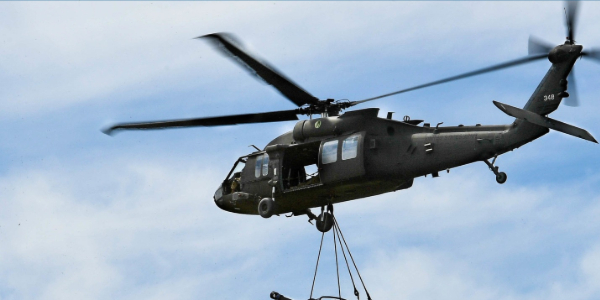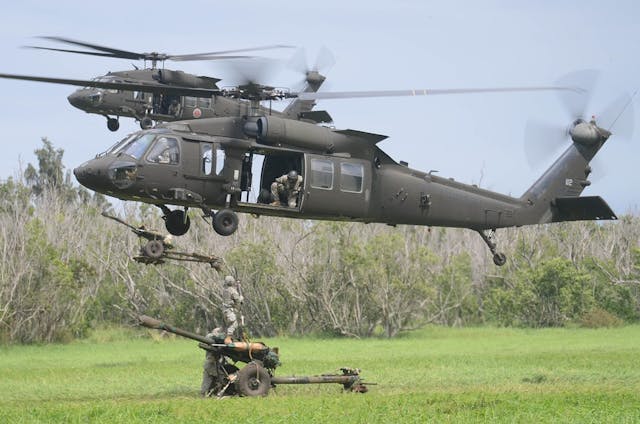UH 60 Helicopter Overview: Whatever You Need to Know
The Role of Aircraft fit International Transport and Profession Characteristics
Through the facility of robust air cargo networks, businesses can currently browse worldwide markets with impressive speed and agility, consequently redefining supply chain strategies. As we check out the multifaceted influences of airplane on global trade, it is necessary to think about how these variables will certainly form the future landscape of aeronautics and its role in the economic climate.

Advancement of Air Transportation
The development of air transport has actually been noted by considerable technical advancements and developments that have actually transformed the way people and goods relocate throughout the world. From the Wright brothers' initial powered trip in 1903 to the growth of supersonic jets, each landmark has highlighted the unrelenting pursuit of performance and rate in air travel.
The latter part of the 20th century witnessed the development of commercial aviation as a feasible setting of transport, characterized by the introduction of jet engines, which transformed air traveling by significantly reducing flight times. The surge of air cargo in parallel with passenger services has actually further emphasized the adaptability of aviation.
Effect On Global Trade
Air transportation has exceptionally improved global profession by helping with the swift movement of items across vast ranges. This expedited logistics capability permits businesses to respond rapidly to market demands, thus boosting supply chain effectiveness. The capacity to deliver subject to spoiling products, high-value items, and time-sensitive items has actually opened new markets and opportunities for various industries, substantially influencing profession patterns.
In addition, the development of air freight networks has promoted globalization, allowing companies to resource materials and products from various parts of the world perfectly. This interconnectedness reduces lead times and costs, enabling services to remain competitive in an increasingly worldwide market. Additionally, air transportation plays an important function in ecommerce, where customer assumptions for fast shipment have driven a rise popular for air cargo solutions.
The influence of aircraft on worldwide trade reaches the development of strategic trade routes, connecting areas and promoting international partnerships. Nations that purchase air transport framework commonly experience enhanced economic development and raised international direct investment. In general, the development of air transportation has not only transformed the logistics landscape but has likewise become an important component in the characteristics of global trade.

Economic Advantages of Air Travel
A robust air travel field creates considerable financial benefits, contributing to job development, tourist, and overall financial development - uh 60. The aeronautics industry supports numerous work around the world, ranging from straight work in airlines and flight terminals to indirect roles in industries such as hospitality, transport, and logistics. According to sector records, for every single job in the aviation sector, roughly 3.5 extra tasks are created in the broader economic climate
Tourism is an essential component of the financial advantages acquired from aviation. Flight helps with global tourist, permitting travelers to explore varied locations, which in turn boosts local economic situations. Countries that buy their aeronautics infrastructure frequently experience raised vacationer arrivals, leading to Continue higher spending on solutions such as attractions, hotels, and dining establishments.

Furthermore, aviation enhances worldwide connection, making it look at more info possible for businesses to access new markets and sources successfully. As an outcome, industries such as ecommerce and production advantage profoundly from trustworthy air transport, more driving financial expansion.
Difficulties Facing the Air Travel Market
Navigating a complicated landscape of governing, environmental, and financial obstacles, the aeronautics market deals with significant obstacles that intimidate its sustainability and growth. Rules bordering security and safety and security are continually progressing, demanding continuous compliance and adaptation from manufacturers and airlines (uh 60). This can cause boosted functional prices and resource allotment that takes away from advancement and expansion initiatives
Furthermore, environmental problems have actually come to be paramount, with growing examination over carbon emissions and sound pollution. The industry is under stress to adopt greener methods and technologies, which usually require significant investment in research study and growth. Balancing these environmental duties with the demand for flight provides a considerable difficulty.
Economic changes, such as rising gas rates and geopolitical unpredictabilities, additionally complicate the landscape. Airline companies regularly face unpredictable operating expense and fluctuating traveler need, which can impact earnings and long-term preparation. Labor scarcities and skill voids in important locations add one more layer of complexity, impeding functional performance.
Inevitably, resolving these diverse difficulties is necessary for the air travel market to maintain its pivotal role in worldwide transportation and profession, while ensuring resilience and adaptability in an increasingly affordable market.
Future Trends in Air Traveling
Shifting and arising innovations consumer preferences are poised to reshape the future of air traveling significantly. The assimilation of man-made intelligence and maker learning is expected to boost functional efficiency, streamline airport terminal processes, and improve consumer solution. Predictive analytics will facilitate a lot more exact demand projecting, permitting airline companies to maximize trip routines and rates versions.
Sustainability is becoming a key chauffeur in air traveling, with the aeronautics sector significantly concentrated on lowering carbon exhausts. Developments in aircraft design, such as hybrid and electrical propulsion systems, are being explored to meet environmental targets. The fostering of lasting aeronautics gas (SAFs) is expected to play an essential function in achieving net-zero discharges by 2050.
Consumer choices are shifting towards customized travel experiences. Airline companies are buying sophisticated data analytics to customize services and boost consumer engagement, guaranteeing a much more personalized journey from booking to arrival. Additionally, the surge of remote job may cause increased need for recreation travel, as people seek to integrate work and vacation.
Verdict
The evolution of air transportation has actually transformed worldwide trade, yielding substantial financial advantages while also providing difficulties that require calculated monitoring. The continuous adjustment of the aviation market will certainly be necessary for maintaining its payments to the worldwide economic situation.
The latter component of the 20th century saw the introduction of industrial aeronautics as a viable mode of transport, characterized by the introduction of click for source jet engines, which transformed air travel by significantly decreasing flight times. The rise of air cargo in parallel with guest services has actually better highlighted the convenience of aviation. In addition, air transportation plays an important function in shopping, where customer expectations for fast shipment have driven a surge in demand for air products solutions.
Overall, the advancement of air transportation has not just changed the logistics landscape but has likewise become a vital element in the dynamics of worldwide trade.
Sustainability is ending up being a key chauffeur in air traveling, with the aeronautics market progressively concentrated on minimizing carbon emissions.